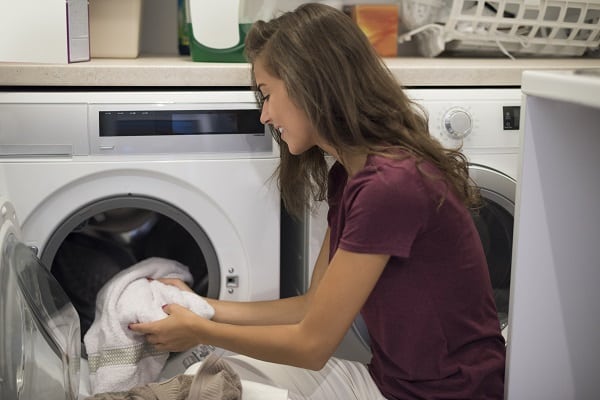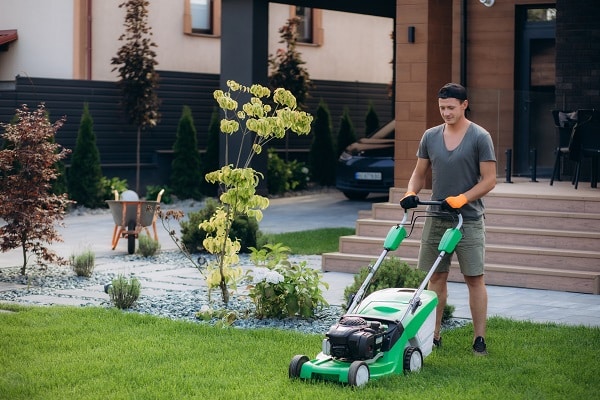As technology advances and your life becomes increasingly convenient, it’s easy to overlook the dangers lurking in your home, especially those related to common electrical appliances. While designed to simplify daily tasks, these items can pose serious risks if not used or maintained properly. From the kitchen to the bedroom, virtually every room in your home houses at least one electrical appliance with the potential to cause harm. This article aims to shed light on these threats and equip you with the knowledge needed to maintain a safer living environment.
Contents
- 1 The Hidden Dangers In Your Kitchen
- 2 The Living Room’s Silent Threats
- 3 Bedroom Hazards
- 4 Potential Dangers In Your Home Office
- 5 Bathroom Electrical Safety Concerns
- 6 Laundry Room Warnings
- 7 Garage And Outdoor Electrical Risks
- 8 Mitigating Risks: Safe Usage And Maintenance Of Electrical Appliances
- 9 The Bottom Line
The Hidden Dangers In Your Kitchen

Your kitchen, the heart of the home, teems with electrical appliances designed to ease cooking and storage. However, some of these handy devices can pose unexpected hazards. Consider your microwave oven, for instance. These time-saving machines could leak harmful radiation if the door seals are damaged or used with an open door. Additionally, their intense heat can cause severe burns if food or liquids are not handled cautiously after heating.
Then there’s the humble toaster, a staple in many breakfast routines. Despite its innocuous appearance, a toaster can be a fire hazard, especially if crumbs accumulate in the tray or are near flammable items. Moreover, attempts to dislodge stuck toast with metal utensils while the appliance is plugged in can lead to electrocution. Regular cleaning and sensible use are key to mitigating these risks.
The Living Room’s Silent Threats

In the living room, television sets and entertainment systems bring joy and relaxation but can also present potential dangers. Televisions, particularly older models, can overheat if left on for extended periods or if ventilation ports are blocked. Additionally, internal faults could result in electrical fires, making it essential to pay attention to any unusual smells, sounds, or behaviors from your television.
Entertainment systems, comprising multiple devices, also pose a threat due to the extensive use of electrical power. Overloading a single outlet with several devices could lead to a fire. Faulty wiring can cause electrical shocks or short circuits, especially in older homes. Regular electrical system inspection and repair, along with sensible distribution of power loads, can significantly reduce these risks.
Bedroom Hazards

Bedrooms are supposed to be sanctuaries, offering rest. Yet, lurking in these quiet spaces are electrical hazards that can disrupt this peace. Electric blankets, for example, are a boon on cold nights, but they can pose a fire risk if left on for too long if they malfunction, or if the cords are damaged. Always switch off and unplug your electric blanket when it’s not in use, and regularly inspect it for any signs of wear or damage.
Another potential risk is charging electronics like smartphones, tablets, and laptops. Leaving these devices to charge overnight, especially on soft surfaces that could cause overheating, poses a fire hazard. Moreover, using unbranded or incompatible chargers can increase this risk. It’s crucial to only use approved chargers for your devices and not leave them unattended for long periods.
Potential Dangers In Your Home Office

Home offices have become increasingly common, with numerous electrical devices enabling productivity. However, computers and laptops can pose a hazard like any other electrical appliance. Overheating can result from prolonged use, especially if ventilation ports are blocked or internal fans malfunction. In extreme cases, this overheating can cause a fire, so give your computer adequate breaks and keep its cooling system clean and functional.
Printers and scanners, while less frequently used than computers, are not without their risks. A malfunctioning or overloaded printer can overheat, leading to a fire hazard. The risk of electric shock can increase if the equipment is poorly maintained or repairs are attempted without the proper knowledge. Always ensure your printer or scanner is in good working order, and consult with professionals for maintenance or repairs.
Bathroom Electrical Safety Concerns

In the bathroom, the combination of water and electricity can be dangerous. Hairdryers, often used near sinks or bathtubs, can pose a serious risk of electrocution if they come into contact with water. Always ensure your hands are dry before handling a hairdryer, and never operate one near a filled sink or bathtub.
Electric razors and toothbrushes are also potential hazards. These devices are typically designed to handle damp environments but are not fully waterproof. The risk of electric shock can increase if they are used while charging, improperly handled, or if the device or charger is damaged. Regularly inspect these items for damage, and always use them as the manufacturer instructs.
Laundry Room Warnings

The laundry room is another area of your home where you should be cautious. While essential for most households, washing machines and dryers can pose a fire hazard. A common issue with dryers is lint buildup in the vent, which can ignite if not regularly cleaned. Additionally, overloading the machines, or improper grounding, can lead to electrical problems.
An iron, another common laundry room appliance, also presents potential hazards. Left unattended, a hot iron can cause burns or start a fire. Always unplug the iron when it’s not in use, keep it out of reach of children, and place it on a heat-resistant surface when hot.
Garage And Outdoor Electrical Risks

Power tools can make tasks more manageable in the garage and outdoors, but improper storage and maintenance can result in electric shock or fire hazards. Always ensure your tools are unplugged when not in use, stored in a dry place, and regularly inspected for any damage or faults.
Electric lawnmowers, while convenient, can pose dangers related to faulty wiring, improper grounding, or poor maintenance. Avoid operating these machines in wet conditions, and keep up with regular maintenance to ensure they are in safe working condition. Treating every electrical device, large or small, with respect and care to minimize potential hazards is important.
Mitigating Risks: Safe Usage And Maintenance Of Electrical Appliances
While it’s true that electrical appliances can pose several risks, the good news is that many of these hazards can be mitigated with proper use and maintenance. General practices like regular inspections of appliances for signs of damage to cords or plugs, avoiding overloading outlets, and keeping appliances away from water sources can significantly reduce risks.
In addition to this, it’s crucial to resist the temptation of DIY repairs unless you’re professionally qualified. Electrical appliances often have intricate wiring and components, and an incorrect repair could lead to more serious issues. When in doubt, always seek professional assistance. Remember, a bit of prevention and responsible handling can go a long way in ensuring your safety and extending the life of your appliances.
The Bottom Line
In your day-to-day life, it’s easy to overlook the dangers posed by the electrical appliances you rely on so heavily. Every room houses at least one potential electrical hazard, from the kitchen to the bedroom, the living room to the home office. However, you can mitigate these risks by staying informed, inspecting appliances regularly, and seeking professional help when necessary. Finally, it’s vital to remember that safety should always be a priority when dealing with electrical appliances. An ounce of prevention is always better than a pound of cure, especially when dealing with potential accidents or injuries. Stay safe, stay informed, and here’s to a safer home.


